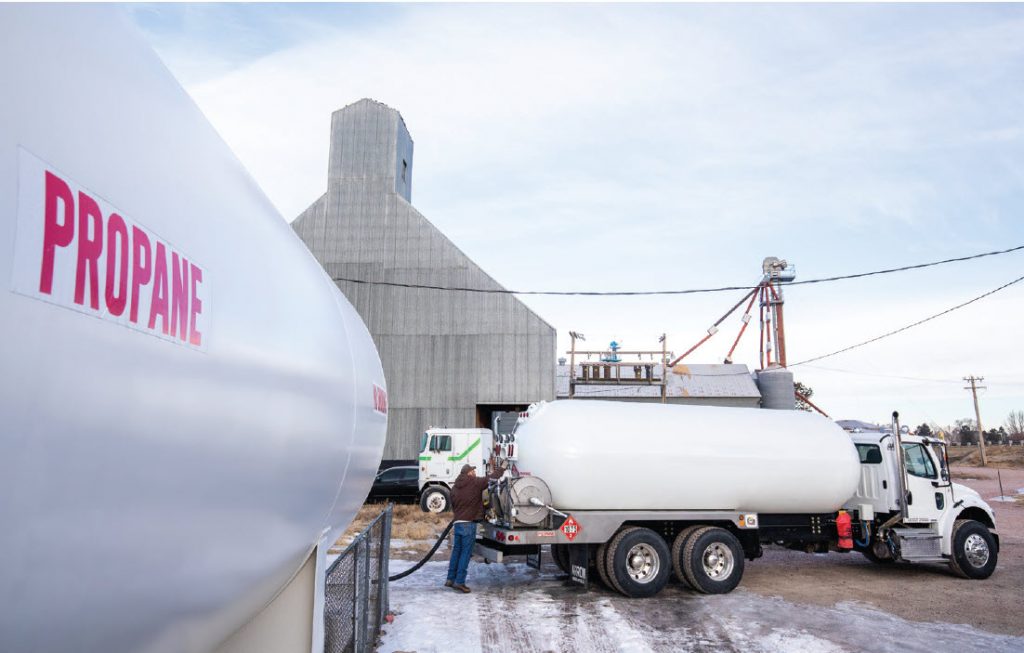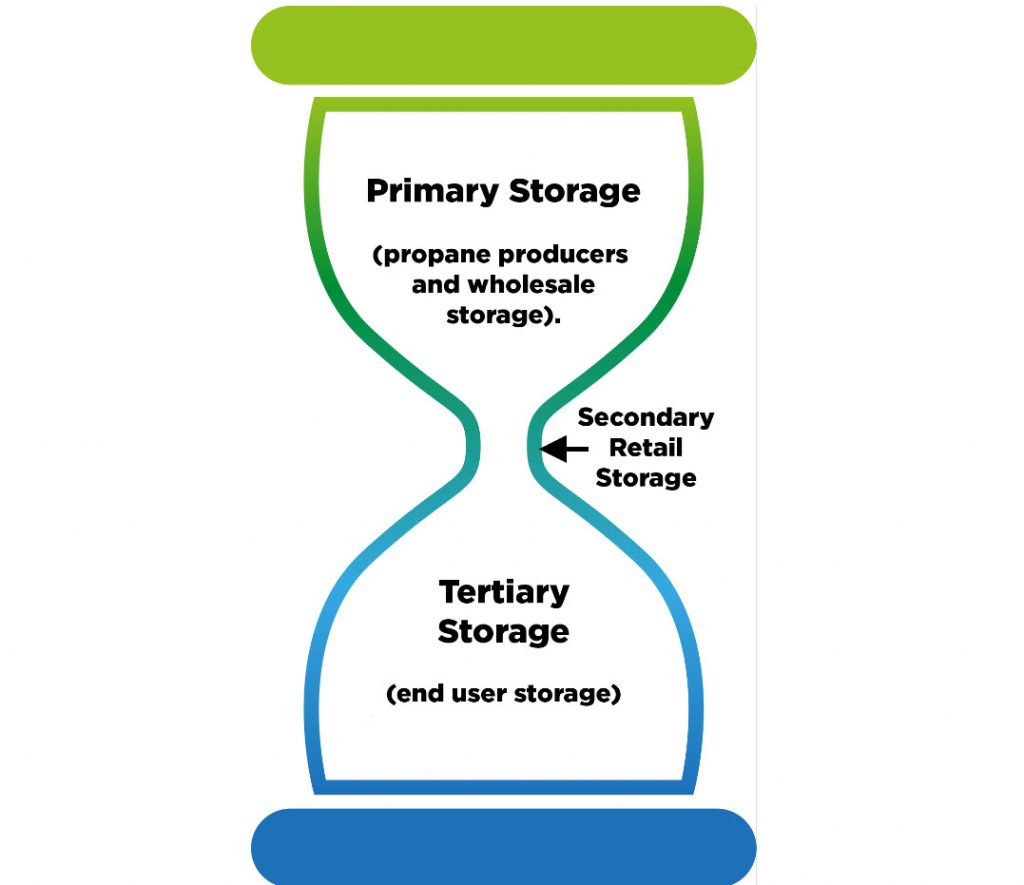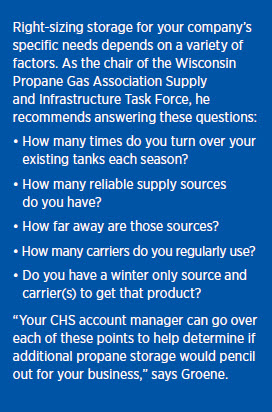Are you able to make it through crunch times without running out? Can you keep all your customers supplied without delays or interruptions? Or could your business benefit from having additional propane storage to ensure reliable supply for current customers and expand to new ones?
Recent changes to global propane markets, including continued new U.S. production and the steady increase in domestic propane exports, are

impacting how and when you buy propane, says Alan Groene, CHS Propane senior account manager for Wisconsin and Michigan. “The tighter U.S. propane inventories we’ve seen in the last year could become a more common occurrence.”
Add to that the continued truck driver shortage impacting most industry supply chains in recent years, he says. “All of these major changes are out of a retailer’s control. The one thing you can control is the amount of storage you have locally. Now is a good time to reassess your current propane storage capacity to make sure you’re right-sized for your local market and the industry’s evolving supply chain factors.”
A good way to visualize today’s propane industry is to think of it as an hourglass, he says, with the top chamber representing primary storage (propane producers and wholesale storage), and the bottom chamber representing end user tertiary storage. The thin middle point reflects the secondary storage level, and its limited amount of retail storage currently available. It continues to be the biggest pinch point in today’s supply chain. Adding storage may be the best way for many accounts to widen that bottleneck.”


How much is enough?
Twenty years ago, the propane industry
recommended 14 days of storage capacity
during peak demand. “That’s not affordable
for many businesses, but a good current rule
of thumb in most U.S. geographies is to have
at least seven to 10 days of storage capacity.
Those in cooler northern climates need at least
eight to 10 days of supply. Currently, only about
5% to 10% of propane retailers have enough
storage based off their geographical region and
logistics,” notes Groene.
Making expansion affordable
Retailers don’t have to shoulder all the burden of expansion costs upfront. The CHS Storage for Pennies program provides a lease-to-own option on new bulk fuel storage and equipment, explains Kenton Sonnenburg, CHS Propane energy equipment manager. “Customers can lease equipment, then pay for it over an extended time with payments included in the price of propane purchased from CHS and at a manageable rate. We can also help customers choose the equipment and features that best fit there operaiton solution, then source the equipment and line up installation with reliable vendors.”
CHS coordinates financing through a third-party source but handles all the payments to make the process convenient. “Most customers pay off their investment in five to 10 years,” says Sonnenburg.
The cost of steel continues to increase, adds Sonnenburg. “A new 30,000-gallon tank now costs 20% more than it did two years ago, and that trend could continue.”
Learn more about the CHS Storage for Pennies program at Storage-For-Pennies.pdf (chsintheknow.com) or call 1-800-852-8186 and press 1.
